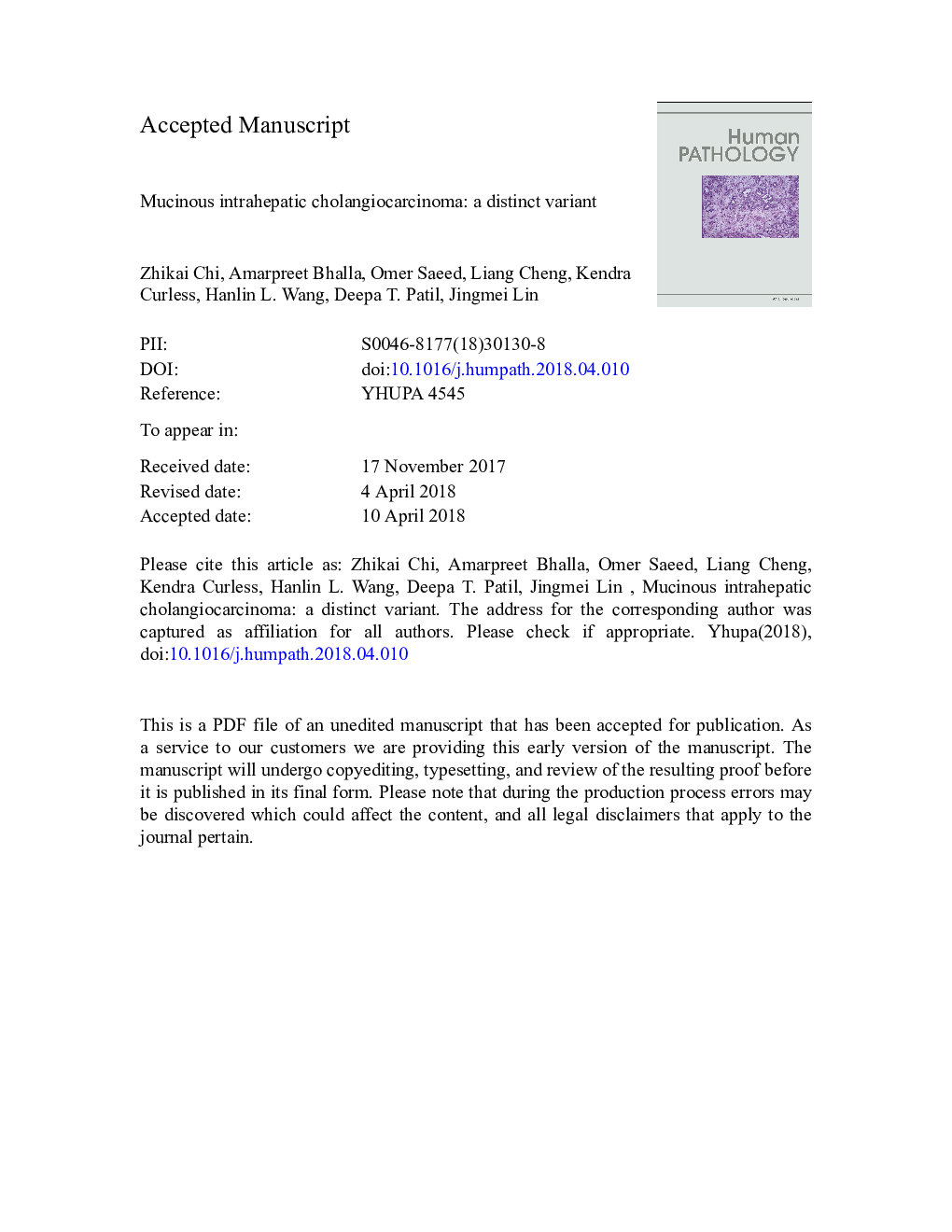| Article ID | Journal | Published Year | Pages | File Type |
|---|---|---|---|---|
| 8807478 | Human Pathology | 2018 | 26 Pages |
Abstract
Mucinous variant of intrahepatic cholangiocarcinoma (iCC) is rare, and its clinicopathological features and prognosis are far less clear. Six patients who had iCCs with more than 50% of mucinous component and 79 conventional iCCs were included in the study. The mean size of mucinous and conventional iCCs was 6.2 and 6.0â¯cm, respectively. Most patients (83%) with mucinous iCC presented at T3 stage or above compared with 28% of the conventional group (Pâ¯<â¯.01). Three patients with mucinous iCC (50%) died within 1â¯year. The average survival time of patients with mucinous iCCs was significantly reduced compared with that of the conventional group (9â¯months versus 2â¯years; Pâ¯<â¯.001). Immunohistochemistry was performed on 6 mucinous and 12 conventional iCCs with matched age, sex, and stage, which revealed positive immunoreactivity in MUC1 (83% versus 58%), MUC2 (33% versus 17%), MUC5AC (100% versus 42%), MUC6 (50% versus 0), CK7 (83% versus 83%), CK20 (0 versus 17%), CDX2 (17% versus 0), p53 (67% versus 67%), Smad4 (67% versus 58%), and EGFR (83% versus 42%) in mucinous and conventional iCCs, respectively. Molecular studies showed one mucinous iCC with KRAS G12C mutation and no BRAF or IDH1/2 mutations. Mucinous iCC is a unique variant that constitutes 7% of iCCs. It is more immunoreactive for MUC1, MUC2, MUC5AC, and MUC6. Unlike adenocarcinomas of colorectal primary, mucinous iCCs are often CK7+/CK20â/CDX2â and microsatellite stable. Patients with mucinous iCC likely present at advanced stage upon diagnosis with shorter survival time compared with the conventional counterparts.
Keywords
Related Topics
Health Sciences
Medicine and Dentistry
Pathology and Medical Technology
Authors
Zhikai MD, PhD, Amarpreet MD, Omer MD, Liang MD, Kendra Curless, Hanlin L. MD, PhD, Deepa T. MD, Jingmei MD, PhD,
